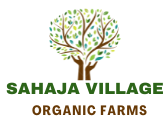Sahaja Village
Little Millet (Samalu)
Little Millet (Samalu)
Couldn't load pickup availability
Little millet, scientifically known as Panicum sumatrense, is a type of millet grain that has gained attention due to its numerous health benefits. Here are some of the benefits associated with little millet:
-
Nutrient-rich: Little millet is a good source of nutrients such as B-vitamins (niacin, thiamine, and riboflavin), minerals (calcium, iron, potassium, magnesium, and zinc), and essential amino acids.
-
Gluten-free: Little millet is naturally gluten-free, making it a suitable grain for people with gluten intolerance or celiac disease.
-
High in fiber: It is rich in dietary fiber, which aids in digestion, prevents constipation, and promotes a healthy digestive system.
-
Low glycemic index: Little millet has a low glycemic index, which means it releases glucose into the bloodstream at a slower rate, helping to manage blood sugar levels. This makes it a good choice for individuals with diabetes or those aiming to control their blood sugar levels.
-
Weight management: Due to its high fiber content and low glycemic index, little millet can help in managing weight by promoting satiety and reducing hunger cravings.
-
Heart health: The presence of magnesium and potassium in little millet contributes to heart health by helping to regulate blood pressure levels. Additionally, its fiber content may help lower cholesterol levels, reducing the risk of cardiovascular diseases.
-
Antioxidant properties: Little millet contains antioxidants such as phenolic compounds and flavonoids, which help neutralize harmful free radicals in the body, thereby reducing the risk of chronic diseases and inflammation.
-
Versatility: Little millet can be easily incorporated into various dishes, including porridge, rice dishes, salads, soups, and baked goods, providing a nutritious alternative to refined grains.
-
Environmental benefits: Millet crops are generally hardy and require fewer inputs such as water and fertilizers compared to other grains like rice or wheat. Therefore, cultivating little millet can be environmentally sustainable, requiring less water and contributing to soil conservation.
Overall, little millet offers a range of health benefits and can be a valuable addition to a balanced diet, particularly for those looking to diversify their grain intake or accommodate specific dietary needs.
Share


